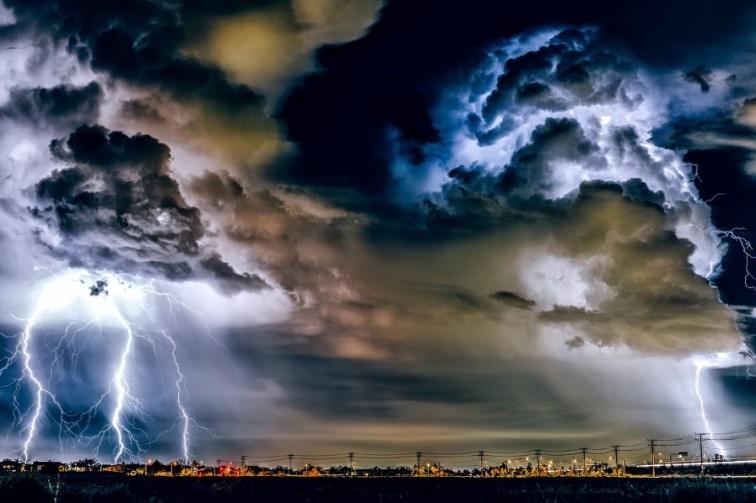The image is a profile photo of Alibaba founder Jack Ma. (Costfoto/Future Publishing via Getty Images)
[People News] On July 6, 2025, the Hong Kong English newspaper South China Morning Post published an article titled "New Communist Party rules hint China’s Xi Jinping is delegating more power to deputies." The article suggests that Xi Jinping may be delegating more authority.
American experts analyze that Xi Jinping will proactively decentralize power.
The South China Morning Post points out that in recent years, Xi Jinping has gradually delegated power to his deputies. Cai Qi has taken over as the head of the Central Cybersecurity and Informatization Commission, while Li Qiang led a delegation to the BRICS summit.
Victor Shih, a China expert at the University of California, San Diego, noted that the newly established coordination group does not signify a large-scale delegation of authority, but rather that Xi wants to oversee the implementation of his policies by his subordinates. He believes that Xi Jinping may gradually transfer the powers of General Secretary of the Communist Party, Chairman of the Central Military Commission, and President of the State, possibly entrusting one of these key positions to a member of the Politburo, which would effectively delay the succession issue by 5 to 10 years.
Niu Ben (Neil Thomas), a researcher on Chinese politics at the American think tank Asia Society, noted that while Xi Jinping has delegated some responsibilities to trusted aides, this action is "more about allowing Xi Jinping to conserve energy for long-term strategic priorities rather than preparing for retirement."
Notably, in December 2015, Alibaba Group founder Ma Yun (Jack Ma) acquired the South China Morning Post, a topic that appears to have been hinted at by state media.
Thus, whether Xi transfers power or loses it, the outcome remains the same. So why does he want to delegate power? This may be linked to a recent incident.
Did the National People's Congress investigate the cause of Li Keqiang's death under the pretext of food safety checks?
On July 7, a gathering of children from a kindergarten in Tianshui, Gansu, suffering from lead poisoning, ignited outrage online. Ironically, on May 9, the Standing Committee of the National People's Congress had just launched food safety enforcement inspections, including in Gansu Province. Why did the poisoned children not seek medical treatment nearby but instead travel to Xi'an? The underlying story is far more intricate than it appears.
From July 1 to 3, the National People's Congress conducted food safety inspections in Shanghai. Overseas media figure Jiang Weiping analyzed that Shanghai is China's most developed city, with the best food regulation, and checking food safety here is not merely about the food; it may serve as a covert investigation into the cause of Li Keqiang's death.
The head of the National People's Congress is Zhao Leji, whose associates have largely fallen from power, and this trend continues. Jiang Weiping believes this covert visit is aimed at Xi Jinping.
Zhao Leji's father, Zhao Ximin, is considered the King of Qinghai. In his early years, he, like Xi Jinping, participated in the 'Down to the Countryside' movement. He was later recommended to attend Peking University and, at the age of 46, became the Secretary of the Qinghai Provincial Committee, followed by the Secretary of the Shaanxi Provincial Committee. With a similar 'red second generation' background to Xi, he is regarded as one of Xi's trusted allies.
Zhao Leji joined the Standing Committee in 2008 while overseeing the construction of a tomb for Xi Zhongxun. However, during the construction, a forced demolition resulted in a fatal incident. The Xi Zhongxun Memorial Park was described by the Japanese newspaper Sankei Shimbun as a 'bloody cemetery' and a 'place of petition.' Local police were required to maintain a long-term presence to prevent petitioners from distributing flyers or committing suicide during Xi's family visits to the grave. In the last two years, Zhao has become involved in the 'Shaanxi 100 Billion Coal Mine Case' and the 'Qinling Villa Case.' The latter was viewed by Xi Jinping as a disruption to the family's lineage, leading international media to speculate that Zhao Leji might be the next high-ranking official to face Xi's wrath.
Therefore, Zhao's inquiry into Li Keqiang's cause of death is not simply to provide an explanation for the Li family; it is primarily a means of self-preservation, allowing him to hold leverage over Xi. This investigation may be starting to show results. The lead poisoning incident in Tianshui, Gansu, is perceived as a counterstrike by Xi against Zhao. If this is accurate, the level of infighting within the upper echelons of the Chinese Communist Party is far beyond what was previously imagined.
Jiang Weiping also noted that the National People's Congress has been quite active, and after he shares information online, their actions seem to halt, as if trying to evade public scrutiny. Whether the actual situation is as described can only be confirmed through continued observation. △
(First published by the People News)








News magazine bootstrap themes!
I like this themes, fast loading and look profesional
Thank you Carlos!
You're welcome!
Please support me with give positive rating!
Yes Sure!